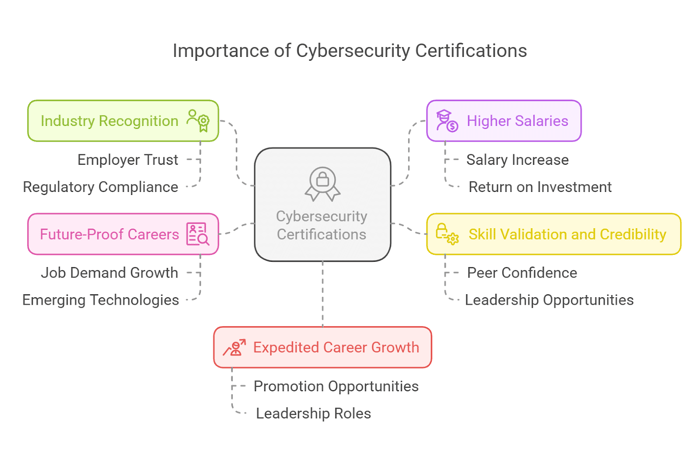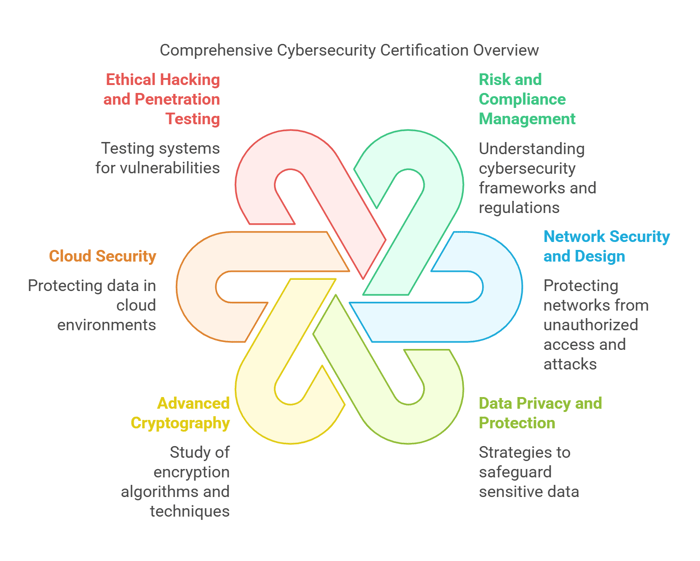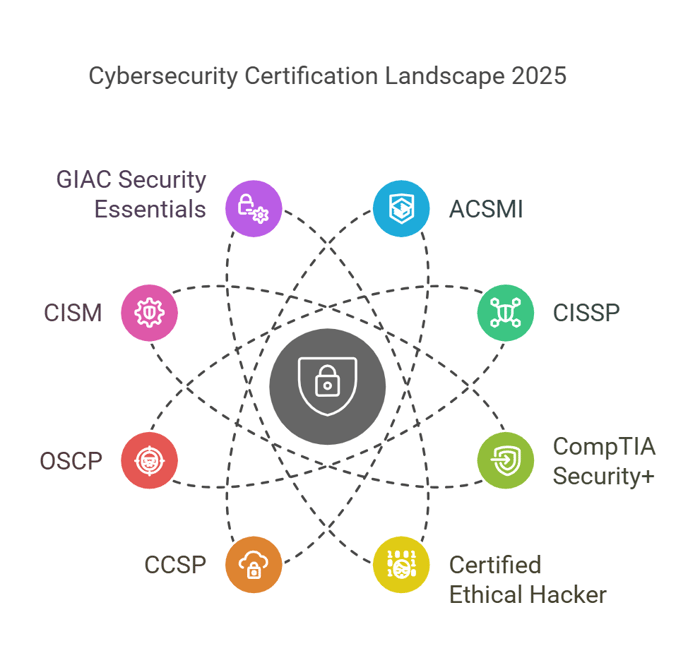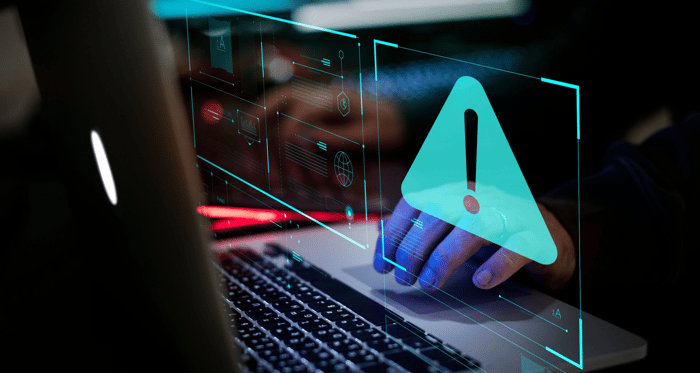Table of Contents
The digital world is evolving at an unprecedented rate, and with it, the complexity and frequency of cyber threats. As data breaches, ransomware attacks, and other malicious activities continue to escalate, cybersecurity has emerged as one of the most crucial aspects of organizational success. With the increasing reliance on technology, the demand for highly skilled cybersecurity professionals has reached new heights. Whether you are just starting your journey into the field or are looking to solidify your expertise, obtaining the right Cybersecurity Workforce Certification Training is one of the most effective ways to enhance your career and increase your job opportunities.
In this comprehensive guide, we will explore why cybersecurity certifications are essential in 2025, delve into the top certifications to consider, and provide insights on how they can accelerate your career growth. Additionally, we’ll focus on the ACSMI Certification, which stands out as a key player in shaping the future of cybersecurity professionals.
What is a Cybersecurity Certification?
A cybersecurity certification is an official credential that validates your expertise in various cybersecurity domains. It proves your ability to secure data, identify vulnerabilities, and manage cyber risks. These certifications demonstrate that you possess the technical knowledge and skills required to protect systems and networks from a wide range of threats.
Why It Matters: Cybersecurity certifications help bridge the gap between formal education and the practical skills required in the cybersecurity field. They give employers confidence in your ability to tackle cyber threats and assure them that you can help safeguard their digital assets.
Types of Cybersecurity Certifications: Cybersecurity certifications cover a wide range of subjects, including:
Risk Management
Ethical Hacking and Penetration Testing
Network Security
Cloud Security
Cryptography
Incident Response
Whether you are aiming to become a network security expert, ethical hacker, or cloud security specialist, certifications are essential to prove your capability in those areas.
2025 Insight: As the world becomes more digitized, certifications focusing on emerging technologies like AI security and quantum encryption will be in high demand in 2025.
Why Are Cybersecurity Certifications Important?
Cybersecurity certifications offer numerous benefits, which can significantly impact your career growth. These advantages include recognition in the industry, higher earning potential, and more job opportunities. For those starting their careers, obtaining a Cybersecurity Certification Entry Level can be a crucial step toward gaining foundational skills and industry recognition. Let’s explore why certifications are critical for career advancement in 2025.

1. Industry Recognition
Cybersecurity certifications are widely recognized within the industry. They act as a testament to your skills and commitment to cybersecurity. When employers see certifications like CISSP, CEH, or ACSMI, they immediately recognize your level of competence and expertise.
Value for Employers: Employers often trust certified professionals because these certifications validate that they have the necessary skills to protect their organization from the latest cyber threats. In industries such as finance, healthcare, and government, certifications are often required to ensure that their cybersecurity experts meet legal and regulatory standards.
2025 Insight: As cyber threats evolve in complexity, specialized certifications in areas like AI-driven threat detection and blockchain security will become crucial for ensuring security at the cutting edge.
2. Higher Salaries
Certified cybersecurity professionals often command higher salaries than their non-certified counterparts. Industry studies show that professionals with certifications such as CISSP, CISM, or ACSMI typically earn 20–40% more than those without these qualifications.
Certification ROI: The cost of certification often pays off quickly. For example, CISSP certification may require a significant upfront investment, but the salary boost it provides can quickly recover that cost and offer a solid return on investment.
2025 Insight: As the demand for specialized roles like cloud security experts and AI security specialists grows, certified professionals in these fields will experience significant salary increases by 2025.
3. Skill Validation and Credibility
Cybersecurity certifications validate your knowledge and proficiency in critical areas like penetration testing, risk management, and cloud security. These certifications give your peers, employers, and clients confidence in your ability to handle complex security challenges effectively.
Building Trust: When you are certified, your colleagues and management will trust your technical abilities. It also opens doors for leadership opportunities, such as leading security teams or consulting on high-stakes cybersecurity projects.
4. Future-Proof Careers
The demand for cybersecurity professionals is expected to grow rapidly over the next decade. The U.S. Bureau of Labor Statistics projects a 35% growth rate for cybersecurity jobs, much higher than the average for all other occupations.
2025 Insight: In 2025, the need for experts in AI-driven cybersecurity, quantum-safe encryption, and cloud infrastructure security will continue to rise. As new technologies emerge, certifications in these areas will be vital to keeping your career future-proof.
5. Expedited Career Growth
Cybersecurity certifications are not only about gaining knowledge but also about accelerating your career growth. Many professionals find that certifications help them move from entry-level roles to managerial positions more quickly. With certifications like CISM or CISSP, you can transition into high-level roles such as CISO (Chief Information Security Officer) or Security Director in a relatively short period.
Fast-Tracking Promotions: Certified professionals have a significant advantage when applying for promotions or leadership roles. Certifications provide a solid foundation, giving you the technical expertise and leadership skills necessary for success.
Key Topics Covered in Cybersecurity Certifications
Cybersecurity certifications focus on several key areas that prepare professionals to face various cyber challenges. Some of the most common topics covered include:

Risk and Compliance Management: Understanding the frameworks and regulations that govern cybersecurity practices, including GDPR, HIPAA, and NIST.
Network Security and Design: Ensuring that corporate networks are safe from unauthorized access, breaches, and attacks.
Data Privacy and Protection: Implementing strategies to protect sensitive data from loss, leakage, and unauthorized access.
Advanced Cryptography: The study of encryption algorithms and techniques used to protect data.
Cloud Security: Protecting data and systems in cloud environments, which are increasingly critical to businesses.
Ethical Hacking and Penetration Testing: Testing systems for vulnerabilities using the same techniques as hackers, but with permission.
Threat Mitigation & Intelligence Analysis: Understanding how to detect, respond to, and mitigate cyber threats effectively.
Incident Response and Forensics: Techniques used to respond to cyberattacks and investigate security incidents.
2025 Insight: In 2025, cybersecurity professionals will need expertise in AI-based threat detection and blockchain security. These technologies are expected to play an essential role in ensuring robust security in industries such as finance and healthcare.
Top 10 Cybersecurity Certifications for 2025
Here’s an in-depth look at the top 10 cybersecurity certifications for 2025, covering a range of experience levels and specialized fields.

1. ACSMI (Advanced Cybersecurity Mastery and Implementation)
Purpose: The ACSMI Certification is ideal for professionals who want to master all aspects of cybersecurity. The program covers everything from cloud security and ethical hacking to blockchain and AI-driven cybersecurity.
Key Features:
Comprehensive curriculum with over 400 modules.
Hands-on projects to simulate real-world scenarios.
Graduates report 30–40% salary increases within six months.
2025 Insight: As AI and quantum encryption continue to reshape cybersecurity, ACSMI’s certification will equip professionals with the cutting-edge skills needed to stay ahead.
2. CISSP (Certified Information Systems Security Professional)
Purpose: A top-tier certification for those aiming for leadership roles in cybersecurity, focusing on governance, compliance, and risk management.
Key Features:
Global recognition as one of the most prestigious certifications.
Requires at least five years of work experience.
Focuses on strategic and leadership skills.
2025 Insight: As cybersecurity governance becomes even more critical in industries like healthcare and finance, CISSP will remain a top choice for professionals seeking high-level positions.
3. CompTIA Security+
Purpose: A foundational certification for newcomers to cybersecurity, covering network security, risk management, and cryptography.
Key Features:
Ideal for beginners with no prior cybersecurity experience.
Vendor-neutral, applicable across various industries.
2025 Insight: As cloud security becomes a focal point in cybersecurity, Security+ will continue to be a foundational certification for professionals starting their careers.
4. Certified Ethical Hacker (CEH)
Purpose: CEH focuses on ethical hacking techniques to identify and fix vulnerabilities within systems.
Key Features:
Hands-on penetration testing labs.
Focus on emerging cyber threats and vulnerabilities.
2025 Insight: As more businesses focus on AI-driven threats, CEH-certified professionals will be in high demand for their ability to identify weaknesses in AI systems.
5. CCSP (Certified Cloud Security Professional)
Purpose: This certification is designed for professionals securing cloud infrastructure and cloud-native applications.
Key Features:
Focus on securing cloud systems and applications.
Covers SaaS, PaaS, and IaaS architectures.
2025 Insight: Cloud security will continue to be a primary concern for businesses in 2025, and CCSP-certified professionals will be essential for securing digital transformation efforts.
6. OSCP (Offensive Security Certified Professional)
Purpose: OSCP is for advanced professionals looking to master offensive security and penetration testing.
Key Features:
Rigorous 24-hour practical exam.
Widely recognized as the gold standard for ethical hacking.
7. CISM (Certified Information Security Manager)
Purpose: CISM is designed for professionals looking to align information security strategies with business objectives.
Key Features:
Ideal for risk managers and security consultants.
Focus on both technical and managerial aspects.
8. GIAC Security Essentials (GSEC)
Purpose: GSEC provides granular, in-depth knowledge of core security concepts for professionals looking to deepen their technical skills.
9. AWS Certified Security – Specialty
Purpose: This certification focuses on securing cloud infrastructure built on Amazon Web Services (AWS).
10. CompTIA CASP+ (Certified Advanced Security Practitioner)
Purpose: CASP+ is designed for advanced professionals who want to integrate enterprise-level security solutions with both technical and managerial roles.
Career Benefits of Cybersecurity Certifications
Cybersecurity certifications can have a profound impact on your career, offering benefits such as:
Increased Job Opportunities: Certified professionals are highly sought after across industries such as cloud computing, blockchain, and AI cybersecurity.
Higher Salary Potential: Certified professionals earn significantly more, with salary increases ranging from 20–40%.
Access to Leadership Roles: Certifications like CISM and CISSP help pave the way to leadership roles such as CISO and Security Director.
Specialized Skills: Certifications allow professionals to specialize in emerging fields like AI-driven cybersecurity and quantum encryption.
Final Thoughts
As the demand for cybersecurity professionals continues to surge, obtaining the right cybersecurity certification, such as ACSMI, will set you apart in 2025. Whether you're just starting your career or looking to specialize in cutting-edge fields like cloud security or AI-driven cybersecurity, certifications are your gateway to success. By choosing the right certification, you’ll unlock new job opportunities, boost your earning potential, and future-proof your career in this high-demand industry. Start your certification journey today and position yourself for a successful career in cybersecurity!
Frequently Asked Questions (FAQ)
1. What is the easiest cybersecurity certification to start with?
CompTIA Security+ is a great entry-level certification, providing a broad understanding of core cybersecurity concepts.
2. Which certifications offer the highest salary boost?
CISSP, ACSMI, and CISM are linked to significant salary increases, with reported growth of 30–40%.
3. How long does it take to complete a certification?
Certifications typically take 1–6 months, depending on the complexity of the program and your prior knowledge.





